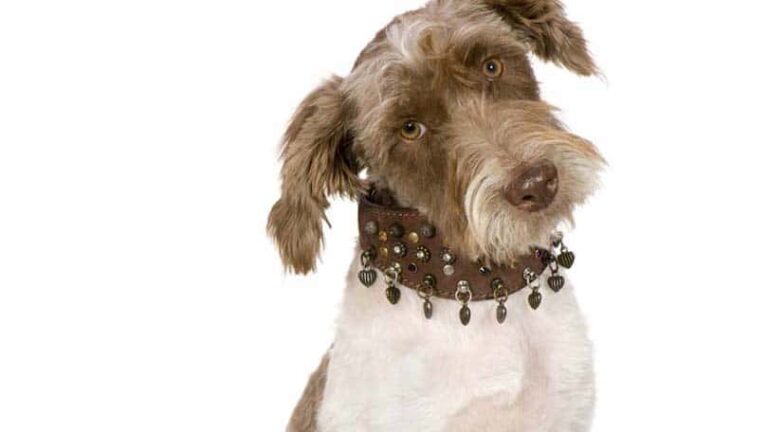Breeding a Dog – Understanding Dog Reproduction
So you want to breed your dog? Breeding your dog is a big undertaking. On one level it can be as simple as putting two dogs together and allowing nature to take its course. But there is much more involved in breeding a dog than just the act itself. Before you decide to breed your dog there are some things to consider.
First of all, think about why you want to breed your dog. Do you want to breed your dog so you can keep a puppy for yourself? It is indeed a wonderful feeling to have a puppy who looks just like his mother or father. There’s a great sense of family and continuity when you have been breeding for a long time and you can look at a dog and he reminds you of his grandparents or other dogs you’ve had. On the other hand, it takes years to produce these dogs and an enormous amount of work. If you are looking for another loving companion it takes much less time for you to simply find another puppy from someone else who’s breeding. You may even be able to find a relative of your dog who will still remind you of one of your dogs.
Do you want to breed your dog so you can sell the puppies and make money? Frankly, most people don’t make much money selling dogs. If you pay a stud fee and provide your bitch with routine veterinary care during and after the puppies are born, and then add in the cost of giving the puppies their first shots and worming (not to mention microchipping them, if you choose to do that), breeding a litter of puppies can be expensive. Yes, you can take shortcuts. Maybe you have your own stud dog so you don’t have to pay a stud fee. Maybe you will cut corners on vet care or not vaccinate the puppies (highly inadvisable). If you cut costs on your bitch’s vet care she could have problems with the pregnancy. If you don’t vaccinate your puppies they could die from a preventable disease before you sell them. And, vaccinated puppies will sell for more than unvaccinated puppies. Most people find, after they try breeding a litter or two for profit, that it’s not worth the trouble.
Do you want to breed your dog so your kids can participate and learn about life? It’s certainly laudable for parents to want to involve their children in things and teach them about animals and life but there are probably better ways to teach them the facts of life. You should also be aware that you might have to teach them about death when you breed your dog. Puppies can be stillborn. It’s always possible that something can go wrong with the delivery and your bitch can die. And, seriously, whelping is a very messy process. Teaching your children about birth may be better done in other ways. You should also keep in mind that once the puppies are born you will have a litter that will eat, play and grow. Are you prepared to tell your children that they can’t keep all of the puppies? Do you have homes lined up for the puppies? Your children may be quite heartbroken if you have to take those puppies they’ve come to love to the animal shelter to be euthanized.
Perhaps you want to breed your dog because you believe she is a quality animal and she has good qualities to pass on to the breed. This is usually the reason why hobby breeders breed, whether they are breeding to show dogs or for hunting or other purposes. Even in this situation not every dog should be bred. Your dog may have a good pedigree and impressive relatives. You may watch dog shows on television and see your dog’s family being shown. But in order to be worthy of breeding you should ask yourself if your own dog measures up to the standard of the breed. Has your dog been evaluated by other breeders or experts in the breed? Have you had your dog tested for health and genetic issues such as hip dysplasia? Most hobby breeders try to obtain good ratings for health and genetic testing before breeding a dog unless there are some extenuating circumstances. Only after getting the all-clear and having some independent evaluations from experts do hobby breeders proceed with breeding their dogs.
If you’ve considered why you want to breed your dog and you want to proceed there are still many things to think about. Of course, the most important decision will be choosing the stud dog. No matter how good your own bitch is, she will only be supplying half the genes to your puppies. The other half will come from “Dad.” So it’s essential that you choose wisely.
You should evaluate the stud dog candidates as carefully as you evaluated your own bitch. You need to consider everything about his appearance, his temperament and his health. The more you know about the male dogs you are considering, the better. If possible, try to visit them in person. This can tell you much more about the dog than simply looking at a photo or talking to the owner. Make sure that you ask about the dog’s health clearances, such as whether or not his hips have been x-rayed and if he has a rating from the Orthopedic Foundation for Animals (OFA). Some breeds routinely use other tests, such as the BAER test for hearing or x-rays for elbow dysplasia or testing for Progressive Retinal Atrophy. You should acquaint yourself with the tests that are normal for your breed.
Don’t overlook the temperament of the dogs you are considering. It should be at least as good as your own bitch’s temperament. Temperament is, to some extent, inherited, so if you are considering a dog with a friendly, outgoing temperament and one with a bad temperament, you should certainly choose the dog with the good temperament.
Physically, you should choose a dog who is strong in the areas where your bitch needs improvement. It’s easy to be “kennel-blind” and believe that our own dogs are perfect but when you’re planning to breed your dog you have to learn to take a critical look at your dog. Where does your dog need to be improved? What would you like to change? Look for a stud dog that can improve her in these areas. Conversely, you can afford to be a little forgiving of a stud dog who is a little weak in places where your bitch is strong. For instance, if your bitch has a beautiful head but doesn’t have much coat, you can be a little forgiving of a stud dog who has a good but plain head if he has a lot of coat.
Breeding your dog is a little like playing matchmaker. You are looking for the best match for your girl. You may have to make some trade-offs. You may not find the perfect dog but you can find one that is a good match.
Don’t be afraid to consider dogs that have not been used at stud much if they meet your criteria. It’s not necessary for everyone to use the same stud dog. In fact, it’s better, in terms of the breed’s gene pool, if everyone doesn’t use the same dog. There can be some very nice male dogs who aren’t advertised much who would make very good stud dogs.
Once you’ve chosen your stud dog you simply need to wait for your bitch to come in season. Breeders differ in their approach to the actual breeding. Some breeders prefer to allow the dogs to interact with each other and do the breeding themselves. Other breeders prefer to assist with the breeding and hold the stud dog and bitch during the breeding. This can prevent the dogs from accidentally hurting each other. If you have a Toy breed or a breed that needs help with breeding you will need to take this approach.
As you can see, there’s a lot more to breeding that simply turning a couple of dogs loose together. Breeding your dog requires a lot of thought and work before the breeding ever takes place. Try to make good decisions for your dog and the future litter and you won’t go wrong.

Having discovered a fondness for insects while pursuing her degree in Biology, Randi Jones was quite bugged to know that people usually dismissed these little creatures as “creepy-crawlies”.







